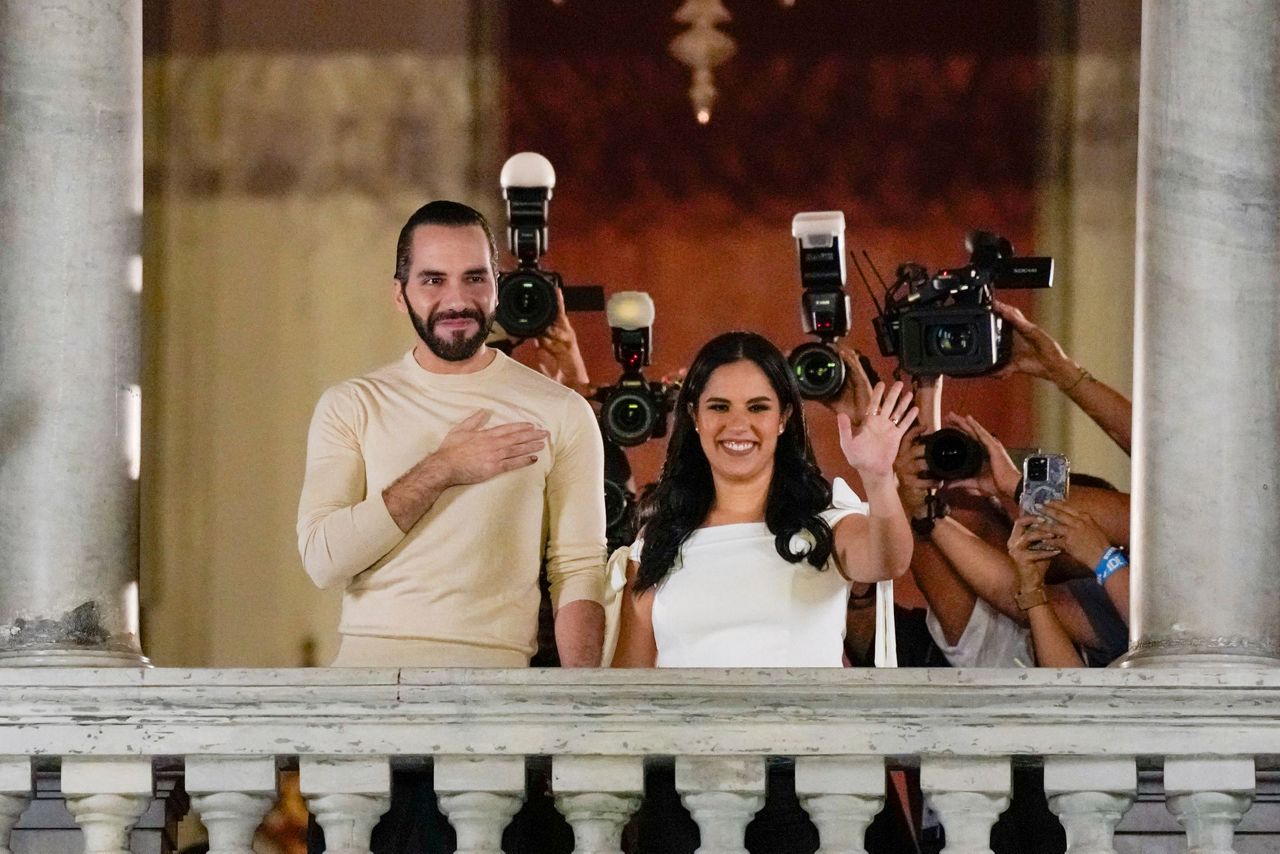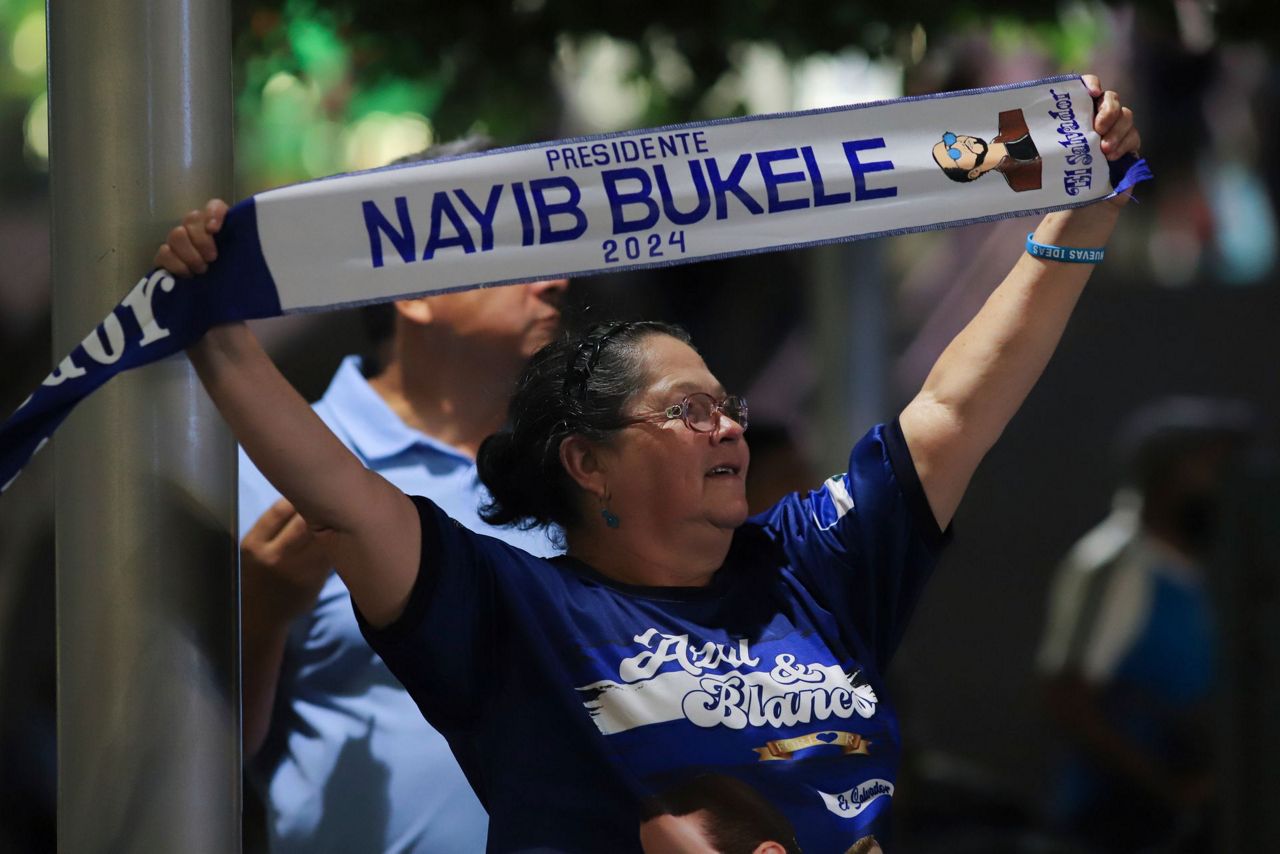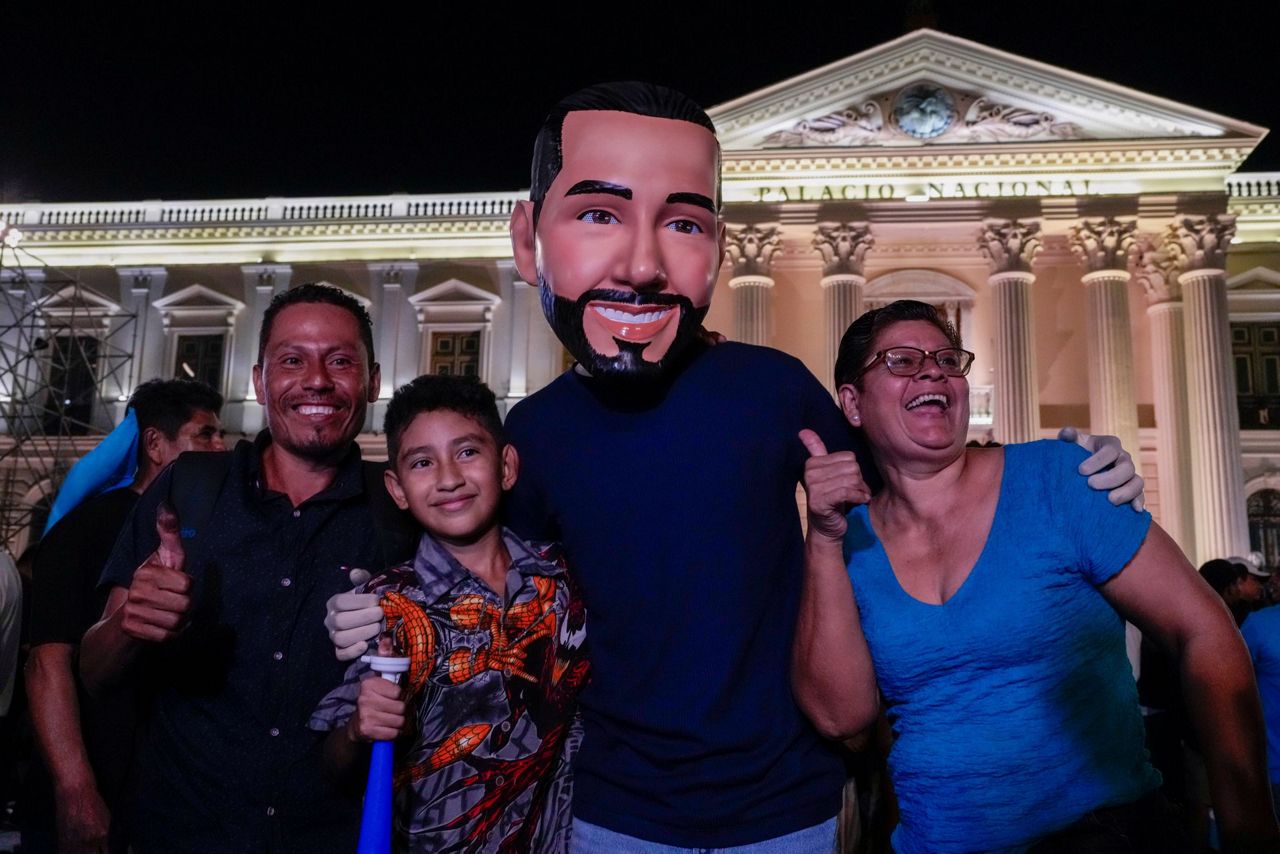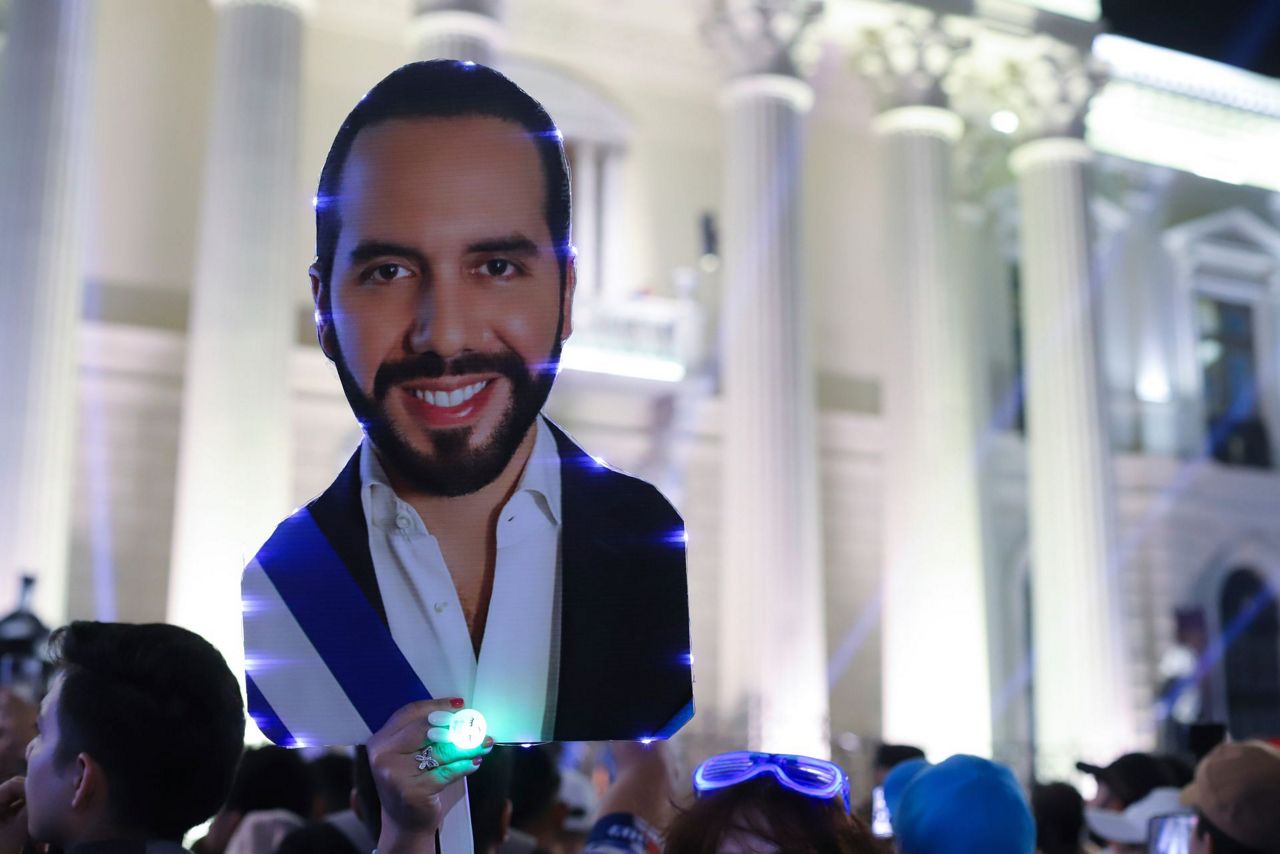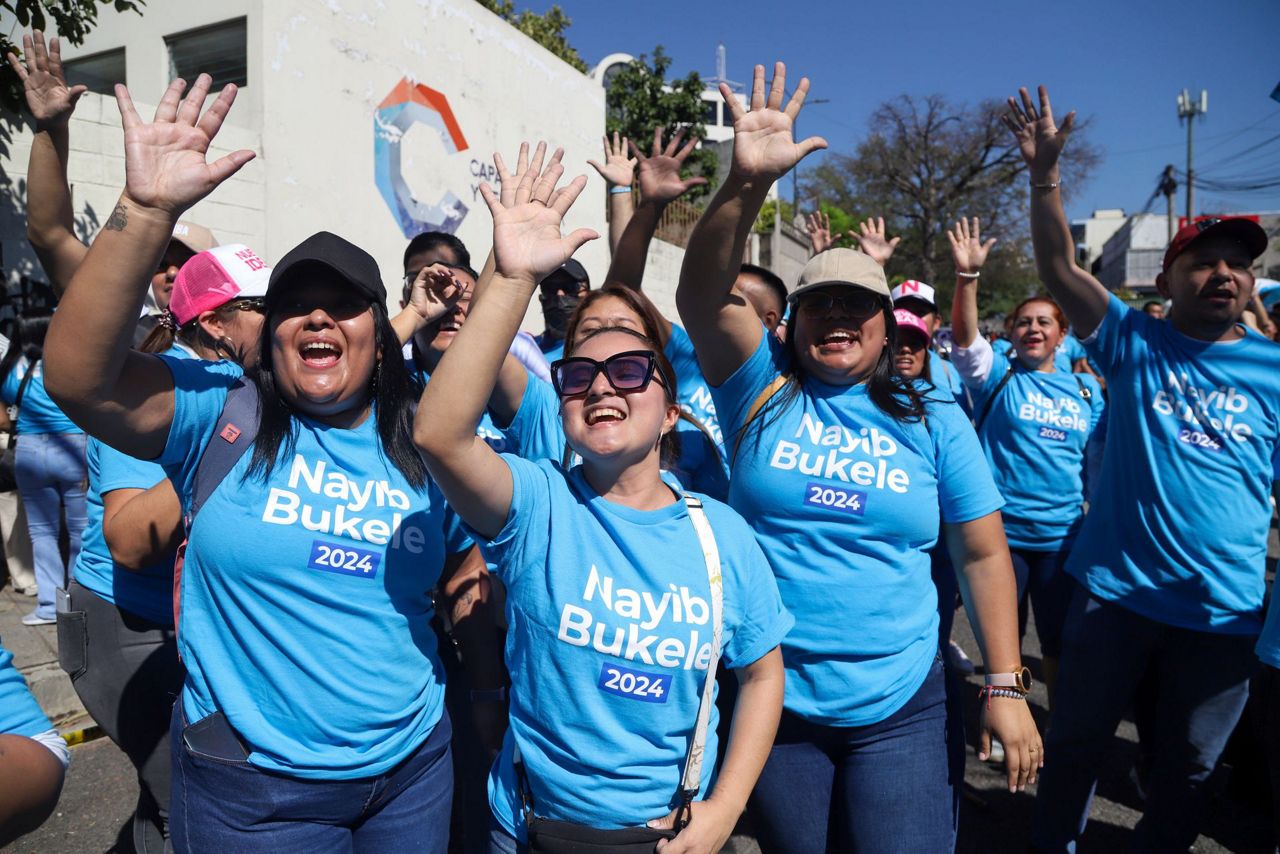SAN SALVADOR, El Salvador (AP) — Voters in El Salvador appeared to give Nayib Bukele a second term as president by a wide margin, but problems with the vote count delayed results Monday in an election that for many represented a trade-off of curtailed civil liberties for security in a country once terrorized by gangs.
Ballots from 31% of polling places had been counted late Sunday, a percentage that suddenly jumped to 70% on Monday morning, according to the Supreme Electoral Tribunal's preliminary results.
Bukele had 83% of the vote, far ahead of the 7% for his nearest competitor, the leftist Farabundo Martí National Liberation Front. A jubilant Bukele declared a historic margin of victory even before electoral authorities released the first preliminary figures Sunday evening.
The electoral authority noted “multiple actions that have hampered the development of the transmission activities of preliminary results” and the lack of paper used to print vote tallies at polling places. It called for a switch to a contingency process that included tallying votes by hand.
Eduardo Escobar, a lawyer with the nongovernmental organization Citizen Action, said he understood there had been two problems: Some poll workers were unable to enter vote totals in the system, and others who did were unable to transmit them.
He said he was not concerned about the result because the margin was so wide. With the order for manual counts, “I understand that the issue is flowing,” he said.
Standing on the balcony of the National Palace on Sunday evening, Bukele said El Salvador had made history. “Salvadorans have given the example to the entire world that any problem can be solved if there is the will to do it,” he said.
The self-described “world’s coolest dictator” had soaring approval ratings and virtually no competition. That's despite concerns that Bukele’s government has chipped away at checks and balances in his first term and accusations that he dodged a constitutional ban on reelection.
Bukele made clear that he expects the newly elected Legislative Assembly to continue extending the special powers he has enjoyed since March 2022 to combat the country’s feared gangs.
“We are not substituting democracy, because El Salvador never had democracy,” he added. “This is the first time in history that El Salvador has democracy. And I’m not saying it, the people say it.”
Under the state of emergency approved in March 2022, the government has arrested more than 76,000 people — over 1% of the Central American nation’s population. It has spurred accusations of widespread human rights abuses and a lack of due process, but violence has plummeted in a country known just a few years ago as one of the most dangerous in the world.
Sara Leon, 48, was among throngs of people who flocked to El Salvador’s previously gang-controlled downtown to celebrate. When she was 23, Leon risked her life to migrate from El Salvador to the United States with her 6-year-old daughter.
“If the gangs saw a cute girl, they abducted her, abused her and killed her,” she said. “I didn't want that to happen to my daughter.”
She returned to her homeland in October because of the state of emergency and hopes her daughter will be able to return.
“He is a genius,” she said of Bukele, tearing up when asked what his administration has meant. “If he's a dictator, may we have a dictator for 100 more years.”
Bukele’s popularity has drawn attention across the region, and he and his party are increasingly looked to as a case study during a wider global rise in authoritarianism.
Bukele has been accused of taking undemocratic steps to concentrate his power, something observers have worried will only grow with Sunday’s election.
After his party was victorious in 2021 legislative elections, the newly elected congress purged the constitutional court, replacing judges with loyalists. The new justices ruled that Bukele could run for a second term despite the constitutional ban on reelection.
Bukele arrived on the scene when Salvadorans were craving change. El Salvador’s traditional parties — the conservative Nationalist Republican Alliance and the Farabundo Martí National Liberation Front — had alternated power for three decades and were thoroughly discredited by deep corruption and ineffectiveness.
Bukele didn't appear at a single campaign event before the election, instead posting social media videos taped from his couch and urging Salvadorans to vote for him so the opposition doesn’t “free the gang members and use them to return to power.”
He has described the gangs as a “cancer” the nation had to battle in order to grow.
On Sunday, he dismissed foreign criticism and said now that voters had approved him for a second term, external observers don’t have the right to describe his government as undemocratic.
Gesenia García, the 26-year-old owner of a sorbet shop in Ilopango, hitched a ride with neighbors from the outskirts of the capital to celebrate.
“This is a moment of happiness because before we lived in corruption and crime,” Garcia said. “He is the best that God could have sent to this country.”
The traditional parties only brought corruption and bloodshed and themselves were unconstitutional, Garcia said.
Garcia strolled through San Salvador with their 5-year-old son and mother, beaming at the chance to be on streets that not long ago were no-go zones for ordinary citizens.
Copyright 2024 The Associated Press. All rights reserved. This material may not be published, broadcast, rewritten or redistributed without permission.



